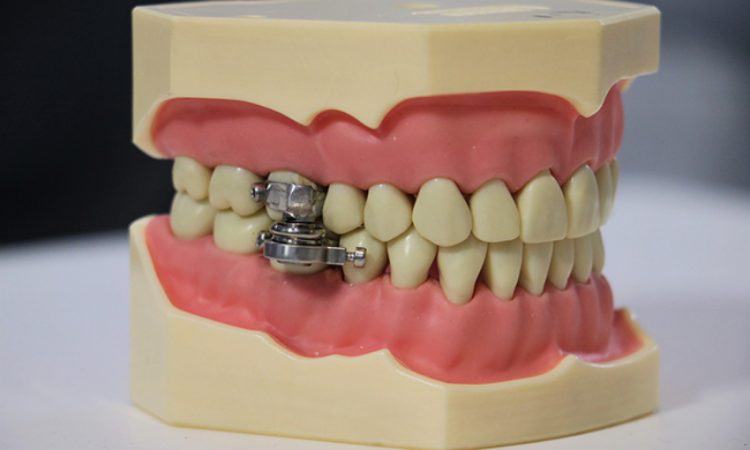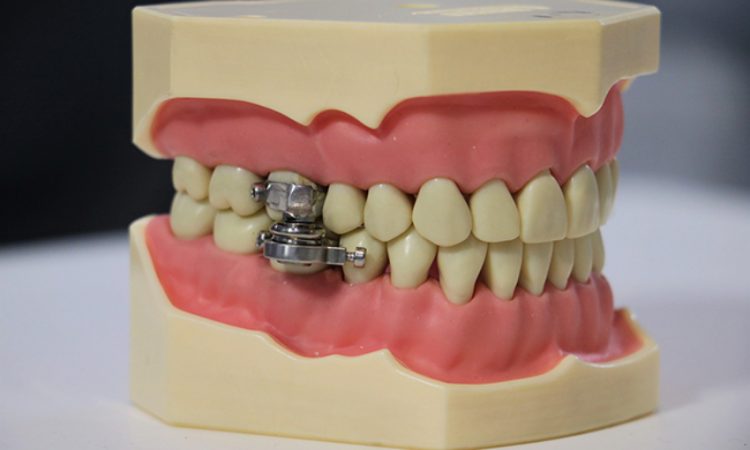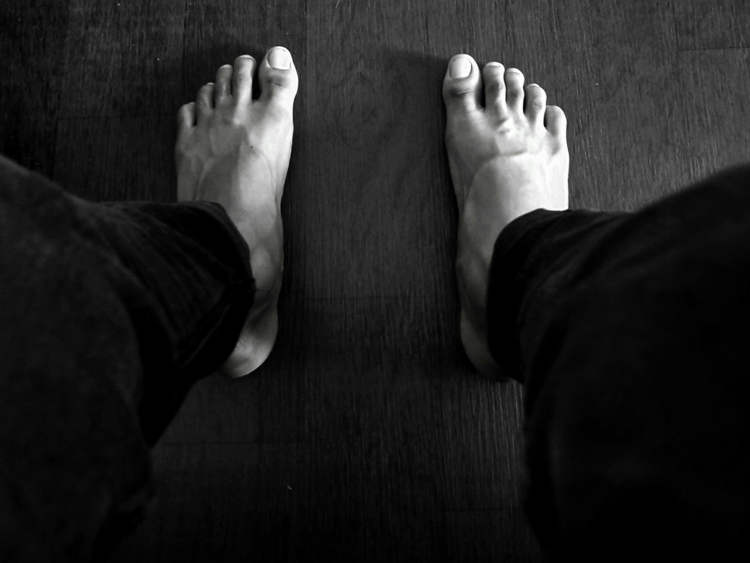DentalSlim Diet Control is a controversial weight loss device designed to allow wearers to open their mouths only about 2mm, thus making them unable to chew while making breathing and speaking possible.
Developed by scientists at University of Otago, in New Zealand, the DentalSlim Diet Control is an intra-oral device that can be attached to the wearer’s upper and lower back teeth by a dental professional. It features unique custom-manufactured locking bolts powered by magnets, which, when activated, only allow a mouth opening of about 2 mm, restricting the wearer to a liquid diet, while allowing them to breathe and speak normally. Apparently, the developers of the DentalSlim Diet Control believe that it can play a role in the fight against the global obesity epidemic.

Photo: University of Otago
“The main barrier for people for successful weight loss is compliance and this helps them establish new habits, allowing them to comply with a low-calorie diet for a period of time. It really kick-starts the process,” University of Otago Health Sciences Pro-Vice-Chancellor Professor Paul Brunton said in a press release. “It is a non-invasive, reversible, economical and attractive alternative to surgical procedures. The fact is, there are no adverse consequences with this device.”
As you can probably already imagine, the DentalSlim Diet Control device received a lot of criticism online as soon as it was revealed to the general public. Many described it as a barbaric instrument of torture, and, one has to admit that it doesn’t look like the most fix solution to humanity’s very serious weight problem. However, the scientist who developed it clarified that the DentalSlim isn’t a long-term weight loss solution that anyone can try.
The scientists who invented this device said that it was designed with emergencies in mind. For example patients who require life-saving surgery , but are too overweight to go under knife could have the DentalSlim Diet Control fitted and be restricted to a liquid diet until they reach a safer weight. Then, they can have the magnetic lock deactivated and follow a less restrictive weight loss diet.
Gastric bypass and other bariatric surgeries involve permanent changes to the patient’s digestive system, and while they definitely play a role in managing the obesity epidemic, they can have unforeseen consequences and can be quite expensive for a lot of people.
“The beauty of it is that once patients are fitted with the device, after two or three weeks they can have the magnets disengaged. They could then have a period with a less restricted diet and then go back into treatment,” Professor Paul Brunton said. “This would allow for a phased approach to weight loss supported by advice from a dietician allowing long term weight loss goals to be realized.”
Believe it or not, the practice of locking the jaws to prevent chewing isn’t new. Wiring the jaw was practiced in the 1980s, but it caused vomiting, which came with a risk of chocking, and after 9-12 months, the patients developed gum disease. In extreme cases, patients developed severe psychiatric conditions.
The DentalSlim Diet Control is a more modern device and patients are given a special tool that unlocks the magnets in case of emergencies, but for some it’s just as barbaric as the old practice of wiring someone’s jaws to prevent them from chewing.
“Overall, people felt better about themselves, they had more confidence and they were committed to their weight loss journey” Professor Brunton said. “It’s hard yards. Patients who really want to do this have to be committed. But for those people who are really struggling – and let’s face it, that’s millions of people across the world – this is a way of getting them back into normal lifestyle diet habits by really pump priming the process. This could actually help a lot of people.”
The researcher’s claims are backed up by the results of a trial study in which participants lost an average of 6.36kg in two weeks and were motivated to continue losing weight.
Just in case you’re still wondering, no, this is no April’s Fool, but a real thing…













